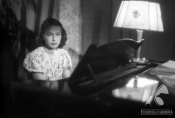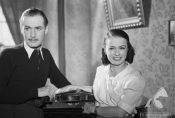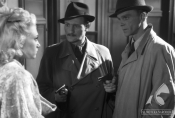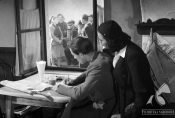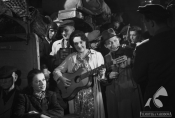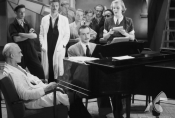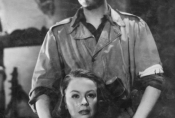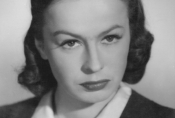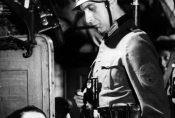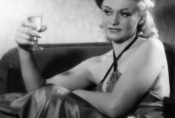FORBIDDEN SONGS [1946]
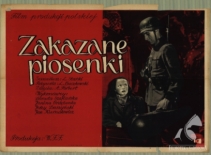
year:
- 1946
release date:
- 1 VIII 1947
runtime:
- 97 min
directed by:
- Leonard Buczkowski
written by:
- Ludwik Starski
director of photography:
- Adolf Forbert
cast:
- Danuta Szaflarska [Halina Tokarska], Janina Ordężanka [mother of Halina and Roman], Jerzy Duszyński [Roman Tokarski], Jan Świderski [Ryszard], Jan Kurnakowicz [Cieślak, a musician], Stanisław Łapiński [musician, friend of Cieślak and the Tokarskis], Zofia Jamry [Maria Kędziorek, a volksdeutsch woman], Konstanty Pągowski [Antoni, a caretaker], Józef Maliszewski [film atelier manager], Hanka Bielicka [a street singer], Maria Bielicka [a recitator], Janina Draczewska [a woman in a kiosk], Alina Janowska [a street singer], Helena Puchniewska [a saleswoman on the train]
edited by:
- Róża Pstrokońska
production design:
- Anatol Radzinowicz, Józef Galewski, Czesław Piaskowski
produced by:
- Przedsiębiorstwo Państwowe Film Polski
executive producer:
- Franciszek Petersile
music by:
- Roman Palester
About the film
The first Polish feature film completed after the war recorded life in the occupied capital and a unique form of resistance − namely the public performance of banned patriotic songs ridiculing the occupier. The second version was reedited after allegations published in "Kużnia" magazine: after the scenes of the Uprising, a sequence with a parade of troops occupying Warsaw and several other scenes "to strengthen the realism of the occupation” were added. Today, the main protagonist of the film is this authentic street song and the voices of anonymous performers.
Roman Tokarski, a composer collecting melodies from the time of the Nazi occupation, tells a young Polish soldier − a repatriate from England − the story of "the forbidden song" in the capital.
The song Varsovienne evokes images of the autumn of 1939: the first patriotic street concerts in which he participated as a musician along with his sister, Halina. Together, they organised a street orchestra, and later worked in the underground resistance, carrying weapons and documents and taking part in diversionary actions. After the Warsaw Uprising, they took refuge with a partisan unit. The story of their wartime lives is intersected with the fate of the other residents of the house: Cieślak, their cowardly neighbour − Tokarska, a Jew in hiding, a traitor violinist and a German informer.
Jan Słodowski, Leksykon polskich filmów fabularnych, Warszawa 1996
